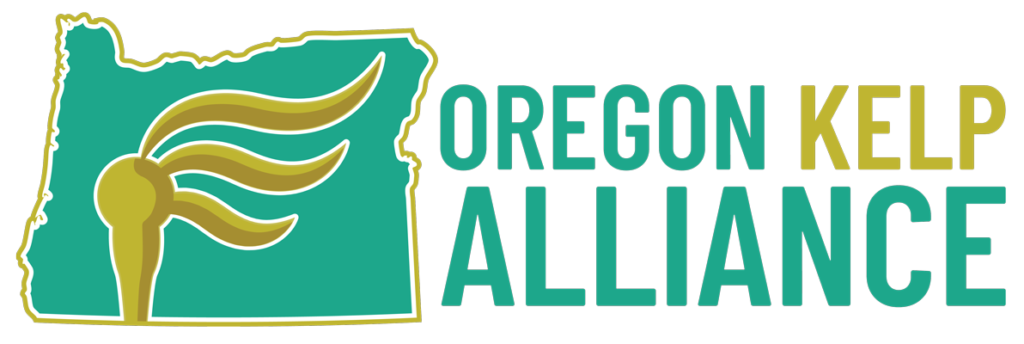HAVE YOU SEEN ME? THE SUNFLOWER SEA STAR!
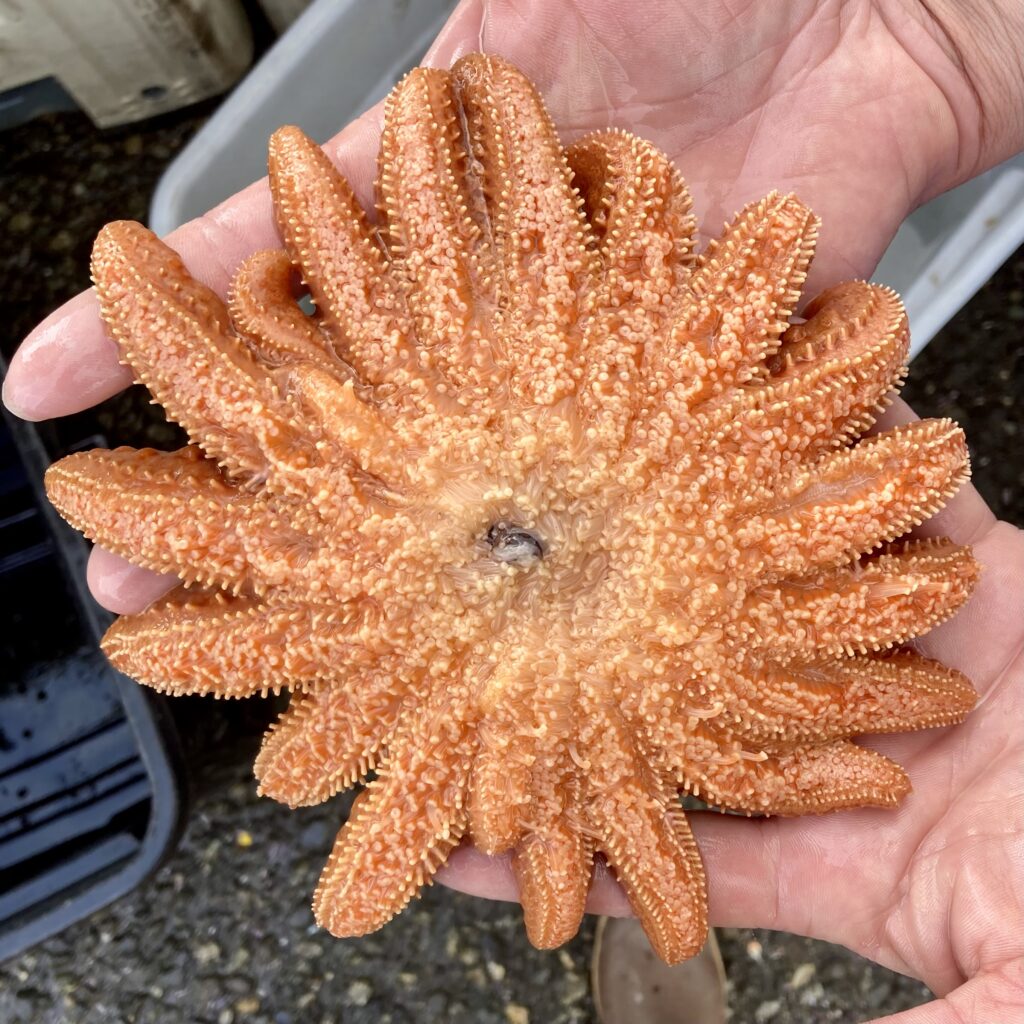
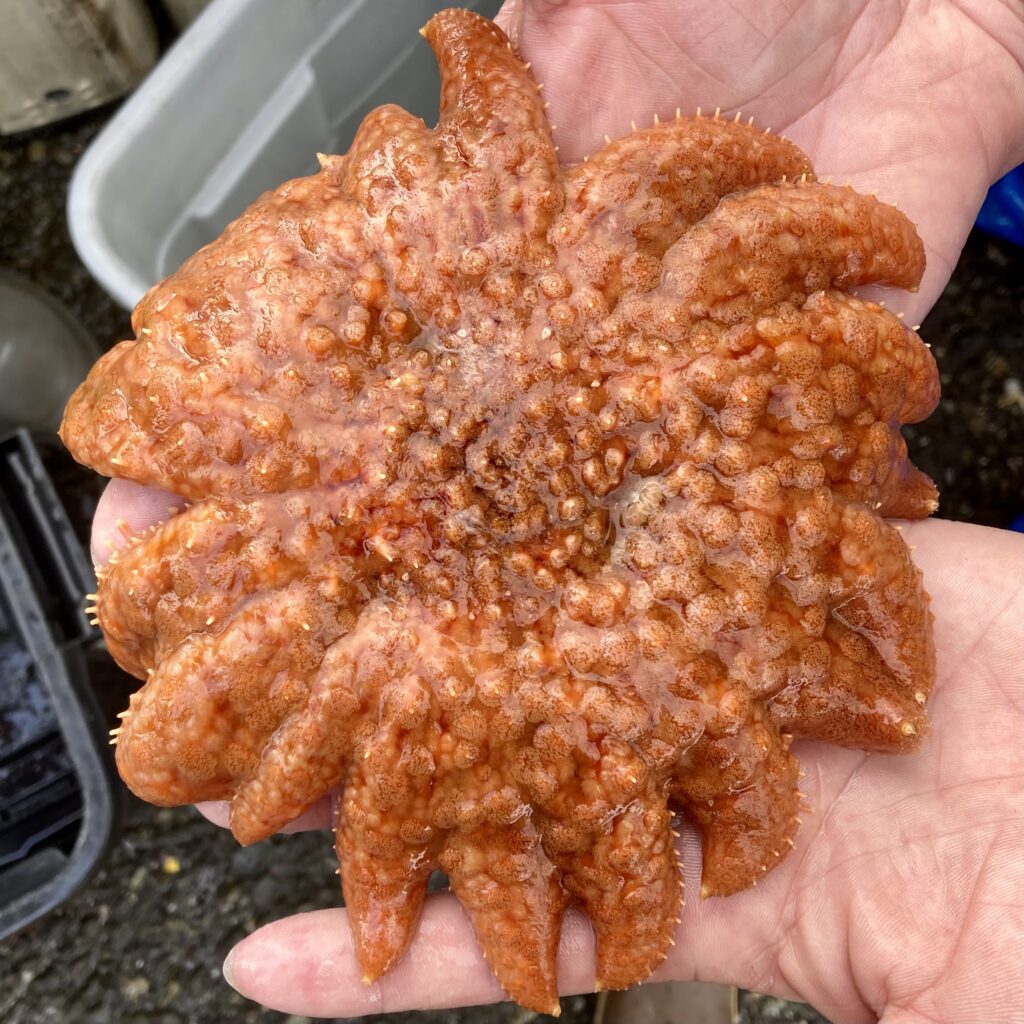
Have you seen a sunflower sea star in Oregon? We want to know! Please submit any observations (do not collect the animal!) to seastarwasting.org or iNaturalist (not both). Please submit the date and location, and a picture if you have one (required for iNaturalist submissions). Below you will find an identification guide if you are not sure which sea star species you have seen. Any questions? Email gravems@oregonstate.edu.
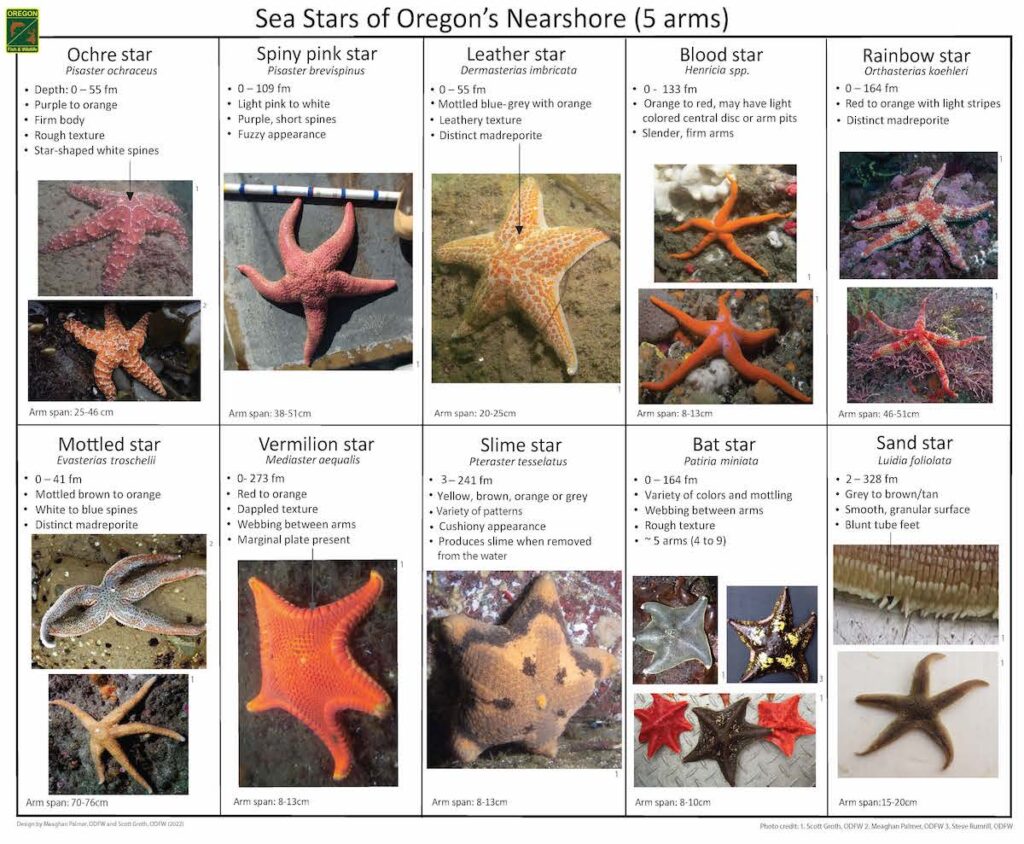
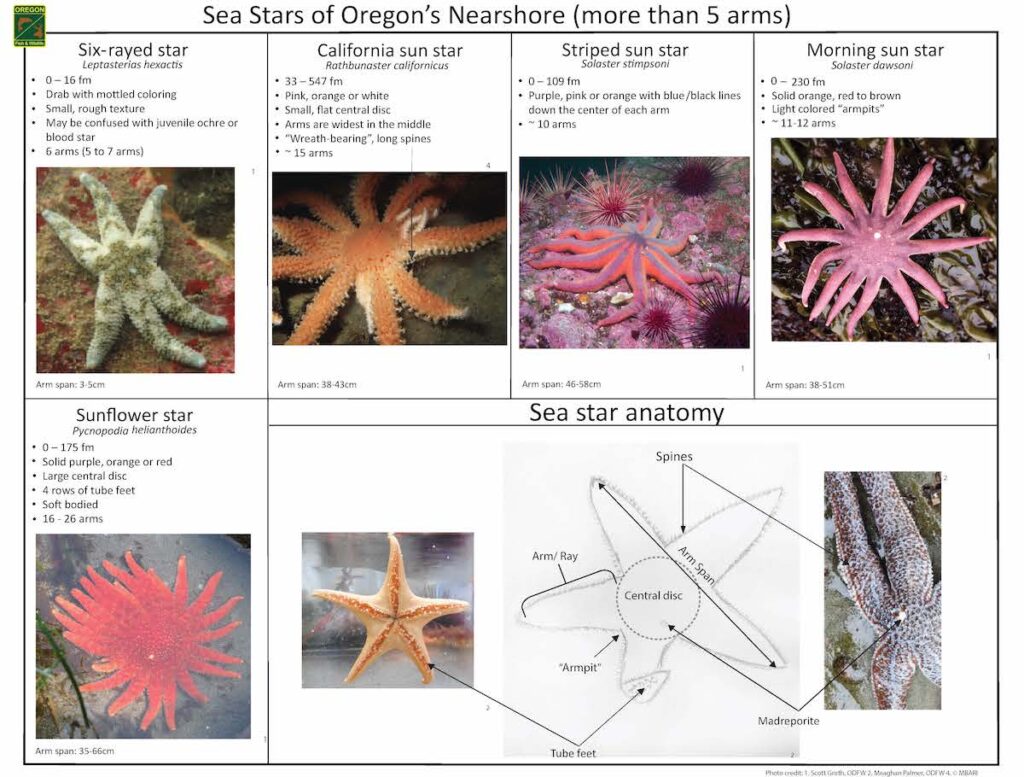
The outbreak of sea star wasting disease in 2013 caused severe declines in sunflower sea stars (Pycnopodia helianthoides), and ORKA scientists have shown that these animals are now extirpated along much of the contiguous US West Coast with little sign of recovery. The disease was most devastating in the warmer southern extent of their range, and these animals are now nearly absent in Oregon, California, and much of coastal Washington. They are listed as Critically Endangered by the IUCN and being considered for a Threatened listing by the US Endangered Species Act.
Following this outbreak, the abundance of their prey, purple sea urchins (Strongylocentrotus purpuratus) increased dramatically and collapses in kelp forests followed, particularly in Northern California and much of Oregon. The timing of this sequence of events suggests that the decline of the sunflower sea star, the increase in urchins, and the decline of kelp forests are linked. Recent work by ORKA scientists and The Nature Conservancy revealed that these sea stars may indeed control purple sea urchins and keep kelp forests healthy. ORKA is part of a growing movement to restore these top predators, which we believe is a key tool to ‘help the kelp’.
To recover this species, ORKA scientists, The Nature Conservancy, aquarists, and resource managers are working with collaborators at Friday Harbor Labs to bring captively-raised sea stars to the Oregon Coast Aquarium or the Hatfield Marine Science Center. We are working on permits and protocols that will help us release these predators back into our Oregon waters. We are also working with collaborators from University of California Santa Cruz on experiments in Sitka, Alaska in summer 2023 to test how this release in the wild may reduce sea urchin grazing on kelp by creating a ‘landscape of fear’ – where urchins are scared and eat less kelp. We hope to try temporary releases in Oregon in summer 2024.
